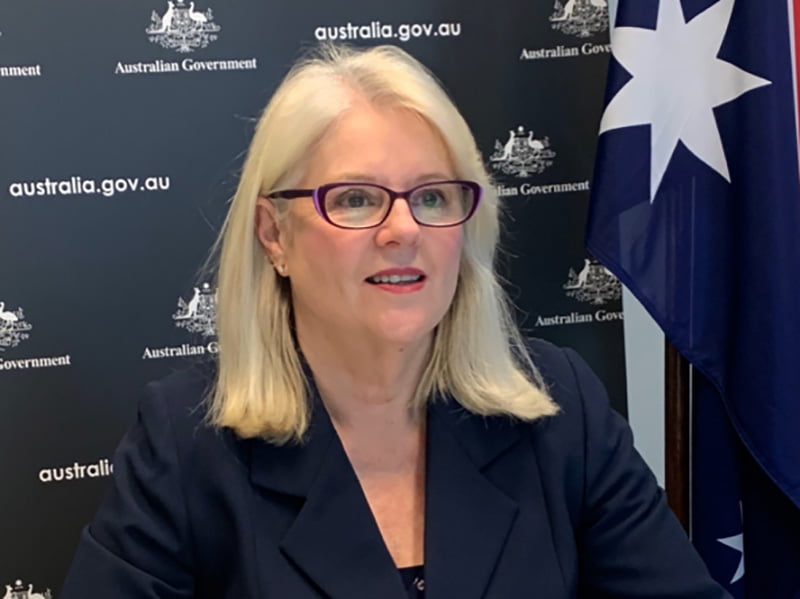Home Affairs Minister Karen Andrews has not yet been briefed on the crypto currency data sharing ‘travel’ rule and the federal government has no intention of developing a technology solution to implement it, despite Australia’s financial regulator expressing interest and warnings that jurisdictional gaps are being exploited.
On Friday, Minister Andrews confirmed she had not yet sought a briefing from her department on the so-called travel rule, which requires financial institutions and virtual asset service providers to pass on certain information to one another, creating an audit trail to counter money laundering and illegal payments involving digital assets.
The travel rule has been endorsed by the Financial Action Task Force (FATF) since 2019 and reaffirmed in its latest guidance.
The global intergovernmental group, of which Australia is a part, in June also recommended the travel rule be adopted as quickly as possible because jurisdictional gaps were allowing the misuse of virtual asset service providers for money laundering, terrorist financing and cybercrime.

AUSTRAC officials in May said the approach would help the regulator track the use of cryptocurrency for money-laundering, but noted it was a policy issue that would require legislative changes.
A government led Senate inquiry heard evidence from the digital assets sector that a strictly implemented travel rule in Australia could create regulatory burdens and create a competitive disadvantage with countries not implementing it.
The Australian banking sector supported the implementation of a travel rule as a way of leveling the regulatory playing field between traditional and digital financial products to prevent money laundering and terrorism financing.
The inquiry’s final report recommended the travel rule be considered as part of a review of Anti-Money Laundering and Counter Terrorism Financing regulations.
In response to a Labor question on notice on Friday, Home Affairs Minister Karen Andrews said she had not sought a specific briefing on the travel rule and the government would leave the development of technological solutions for implementation to the private sector.
“Such development requires significant depth of expertise in the underlying technologies and, additionally, it is not something that can be completed in isolation by any one jurisdiction or government agency due to the need for global interoperability of technological solutions,” she said in a written response.
However, the FATF, which counts AUSTRAC and the Department of Home Affairs as members of its Virtual Assets Contact Group, says the lack of implementation by jurisdictions like Australia was creating a disincentive for companies to invest in technological solutions and compliance infrastructure.
The gaps across jurisdictions have allowed bad actors to exploit virtual assets and service providers, according to the FATF.
“These gaps in implementation also mean that we do not yet have global safeguards to prevent the misuse of [virtual asset service providers] for money laundering or terrorist financing,” A June FATF report said.
“The lack of regulation or implementation of regulation in jurisdictions can enable continued misuse of virtual assets through jurisdictional arbitrage.”
Ms Andrews said the Department of Home Affairs and AUSTRAC would continue contributing to the FATF Virtual Assets Contact Group to help the private sector develop technological solutions and associated standards.
The FATF will report on global travel rule implementation in June next year.
Do you know more? Contact James Riley via Email.

